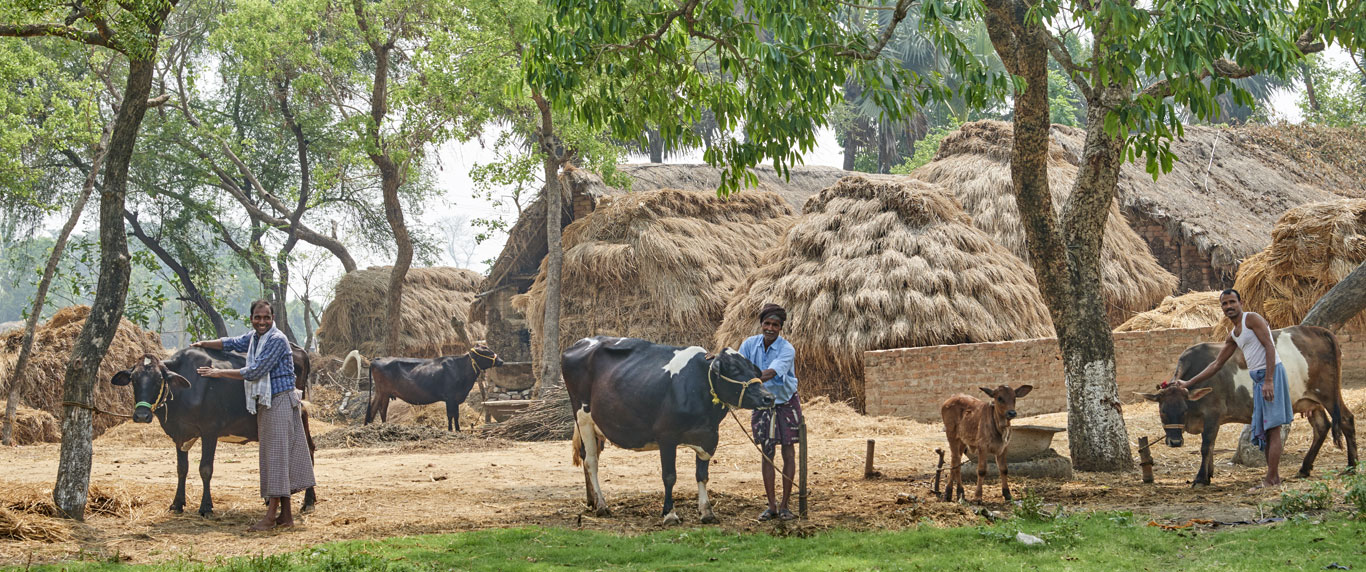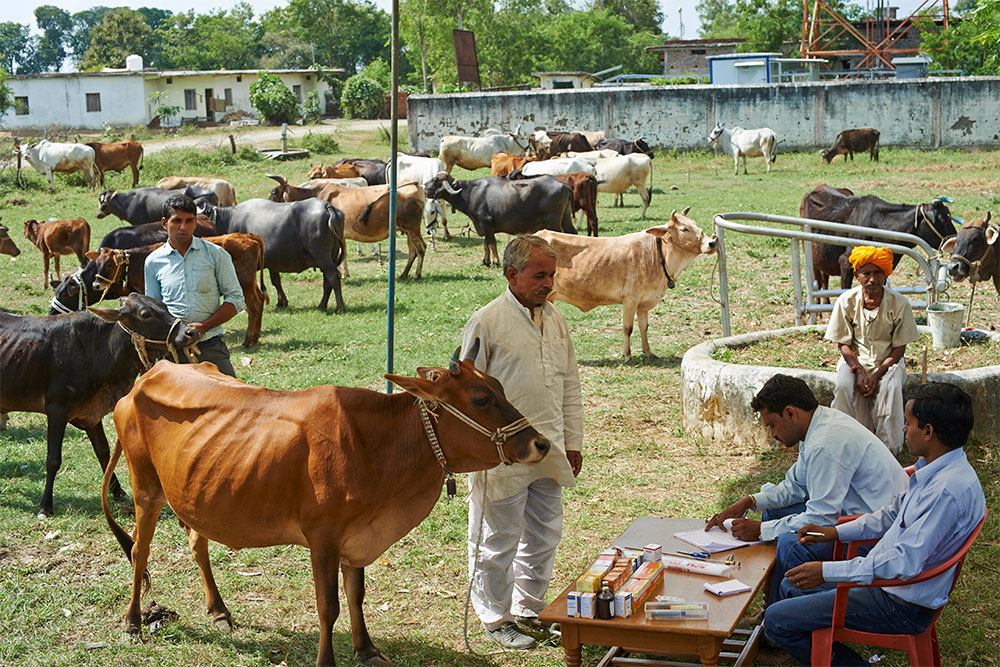
The livestock sector is a critical part of the global food system, contributing ~40% of the global value of agricultural output, while supporting livelihoods and enhancing nutrition security of over a billion people. In India where agriculture is the backbone of the rural economy, livestock rearing is also a vital contributor. Almost all rural households own livestock. For the poorest among these families, livestock is often their only sustained source of income. However, in general milk yields are extremely low a result of poor nutrition and genetic quality.
As part of ITC's interventions to make rural livelihoods more sustainable and resilient, the Company works with communities in 14 states to improve practices and support income generation through livestock rearing.


The IAHP programme is implemented with a two-pronged approach. The first one is related to breed improvement, feed and fodder, animal housing and healthcare (including vaccination). Household members are trained on contemporary practices, and provided technical support for adoption of new practices. They are also supported in linking with relevant government schemes, such as the biogas scheme by the Ministry of New and Renewable Energy and the Fish Pond Support Schemes set up by state governments.
Under the second approach of the IAHP programme, ITC trains rural youth and women as Artificial Insemination Technicians and Pashu Sakhis (a cadre of women) to provide advisory and input services to households, at their doorstep, while also creating awareness among villagers to generate demand for these services.